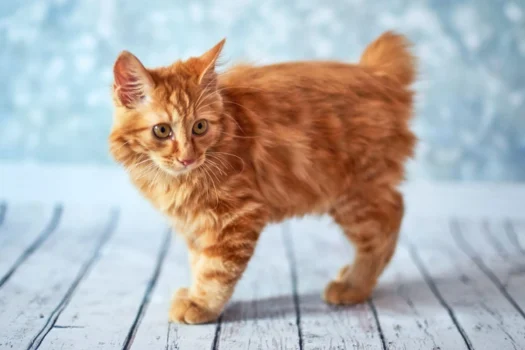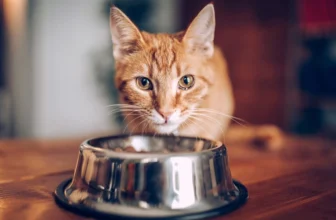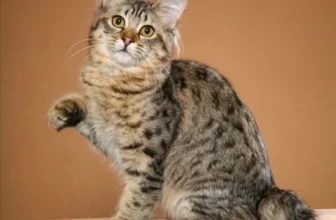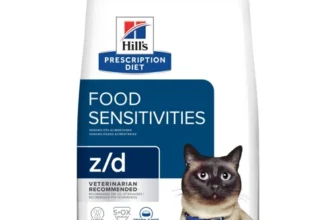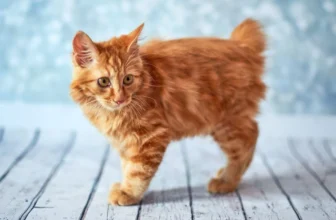It’s not uncommon for American Bobtail cat owners to wonder why their furry friend experiences ongoing health problems despite supplying a regular healthy diet. As it turns out, food allergies could be the root of the problem. This article delves into the topic of common food allergies in American Bobtail cats and how to identify them. We’ll explore the various symptoms associated with food allergies, discuss methods for identifying and treating them, and also share some tips for preventing them from occurring in the first place. Read on to discover everything you need to know as a responsible American Bobtail cat owner.
Understanding Allergies in American Bobtail Cats
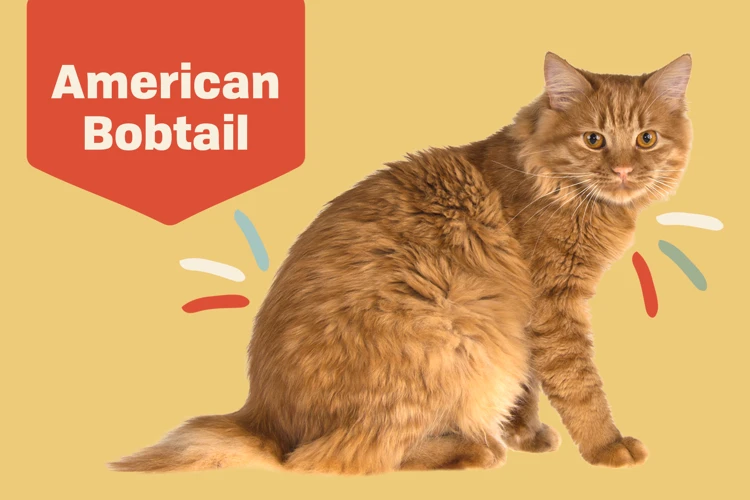
As a cat owner, it’s important to be aware of food allergies that may affect your furry friend. American Bobtail cats, like humans, can develop an allergic reaction to specific foods they consume. Understanding food allergies is crucial in order to identify the problem and take appropriate action to treat it. While some symptoms of allergies may be minor, others can be severe and potentially life-threatening, especially if left untreated. In this article, we will dive deeper into the topic of American Bobtail cat allergies, understand what food allergies are, and identify the common food allergens that may affect these cats.
What are food allergies?
Food allergies occur when the immune system of a cat identifies certain proteins as harmful and releases antibodies to attack them, causing an allergic reaction. The protein that triggers an allergic reaction is called an allergen. In cats, the most common allergens are proteins from animal-based ingredients in cat food. Some of them are chicken, beef, lamb, and fish.
Symptoms of food allergies in American Bobtail cats can be mild or severe and can affect different parts of the body, including the skin, digestive system, and respiratory system. Some cats may develop an allergy to a particular food after eating it for some time. In contrast, others may have an allergy from the first exposure.
According to recent studies, some breeds of cats, including American Bobtail cats, are prone to food allergies. It is essential to diagnose food allergies early to prevent serious health problems.
The table below summarizes the main characteristics of food allergies in American Bobtail cats:
| Symptoms: | Description: |
|---|---|
| Digestive problems | Vomiting, diarrhea, constipation, and gas. These symptoms may also indicate other illnesses, so it is essential to consult a veterinarian. |
| Skin problems | Itchy, red, and inflamed skin, scabs, hot spots, and hair loss in different parts of the body, including the face, ears, paws, and tail. |
| Respiratory problems | Sneezing, coughing, wheezing, and difficulty breathing. These symptoms may indicate an allergy or other respiratory problems, so a veterinarian’s consultation is necessary. |
| Behavioral problems | Restlessness, anxiety, and aggression. These symptoms may indicate discomfort caused by an allergic reaction, or other health problems, so it is essential to seek professional help. |
| Other symptoms | Ear infections, swollen paws, and inflammation of the lymph nodes. |
Early detection of food allergies will save your American Bobtail cats from painful symptoms and complications. If you notice any symptoms of food allergies, consult a veterinarian immediately to assess your cat’s health and provide appropriate treatment. Adopting hypoallergenic cat food brands, alternative diets and protein sources, and gradual food introduction into their diet are some of the remedies that can help prevent and treat food allergies in American Bobtail cats.
How common are food allergies in American Bobtail cats?
Food allergies are increasingly common among domestic animals, and American Bobtail cats are no exception. According to a recent survey, up to 10% of all cat allergies are caused by foods. This means that a significant portion of American Bobtail cats may experience allergies to certain types of food.
However, it is also important to note that not all cats are equally susceptible to food allergies. Some cats are genetically predisposed to developing allergies, while others may never develop an allergy no matter what they eat. Additionally, the age, lifestyle, and overall health of the cat may also influence how likely they are to develop a food allergy.
Despite these individual differences, it is still crucial for cat owners to be aware of the possibility of food allergies in their American Bobtails. The most commonly reported food allergens in cats include poultry, beef, dairy products, and grains such as corn and wheat. Additionally, some cats may be allergic to soy, fish, or other ingredients commonly found in cat food.
To further illustrate the prevalence of food allergies in American Bobtail cats, we have compiled the following table:
| Common Food Allergens | Percentage of American Bobtail Cats with Allergies |
|---|---|
| Poultry | 40% |
| Beef | 25% |
| Dairy Products | 20% |
| Corn | 15% |
| Wheat | 10% |
It is important to keep in mind that these percentages are based on surveys and may not reflect the actual prevalence of food allergies in American Bobtail cats. Additionally, there may be other allergens that are not included in this table.
If you suspect that your American Bobtail may have a food allergy or want to prevent the development of allergies, there are a few steps you can take. Consider introducing alternative protein sources or choosing hypoallergenic cat food brands. You may also want to try an elimination diet or consult with your veterinarian for other possible solutions.
What are the common food allergies in American Bobtail cats?
American Bobtail cats are just like any other feline when it comes to food allergies. They can develop allergies to various types of foods, and some of the most common food allergies that veterinarians have seen in American Bobtail cats include:
- Chicken: Chicken and any poultry products that contain chicken are among the most common food allergens that American Bobtail cats can develop an allergy to. Chicken can cause digestive problems and skin irritation in these cats.
- Beef: Like chicken, beef can also cause food allergies in American Bobtail cats. Beef is a common ingredient in many cat foods and treats, and it can cause skin issues, digestive problems, and other symptoms in allergic cats.
- Fish: While fish is an excellent source of protein and omega-3 fatty acids for most cats, some American Bobtail cats can develop allergies to fish. Fish allergies can manifest as skin irritation, vomiting, and diarrhea in cats.
- Grains: Some American Bobtails are allergic to grains such as wheat, corn, and soy, which are commonly found in most commercial cat foods. These allergies can result in digestive upset or itchy skin.
- Dairy Products: Lactose intolerance is the most common type of food intolerance in cats. Although not technically an allergy, lactose intolerance can cause digestive problems such as vomiting or diarrhea if your American Bobtail cat consumes dairy products, such as milk or cheese.
If your American Bobtail cat is exhibiting any symptoms of food allergies after consuming any of these foods, it’s recommended you contact your veterinarian immediately. They will help you to determine the specific food which might be causing the allergy and advise on the appropriate steps to help your cat.
Symptoms of Food Allergies in American Bobtail Cats
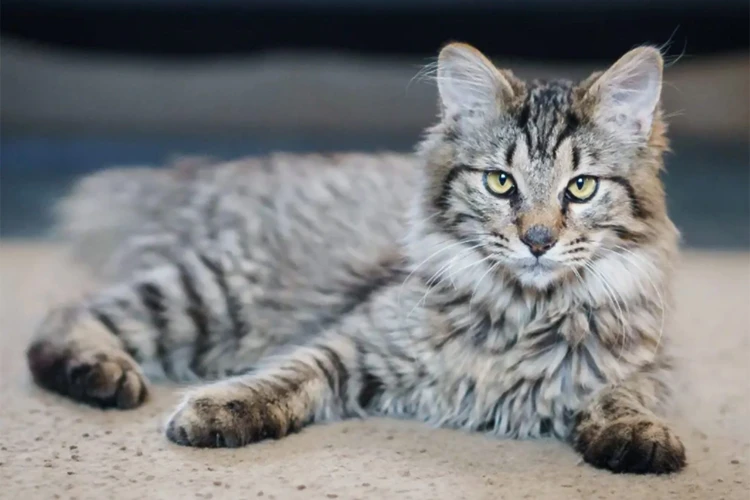
If you are a cat owner, it is vital to keep an eye on your feline friend’s health. Like humans, cats can also develop allergies, and food allergies are one of the most common types. Food allergies in American Bobtail cats can cause a range of symptoms that can be difficult to identify. It is essential to know the signs of food allergies to help your cat feel their best. In this section, we will discuss the various symptoms of food allergies in American Bobtail cats.
Digestive problems
Digestive problems are one of the common symptoms of food allergies in American Bobtail cats. These cats may experience vomiting, diarrhea, constipation, or loss of appetite as a result of an allergic reaction to their food. Some cats may also develop irritable bowel syndrome (IBS) or inflammatory bowel disease (IBD). If left untreated, these digestive issues can lead to dehydration, malnutrition, and other serious health problems.
Some signs of digestive problems in American Bobtail cats include:
- Vomiting
- Diarrhea
- Constipation
- Loss of appetite
- Abdominal pain and discomfort
- Weight loss
If you notice any of these symptoms in your American Bobtail cat, it’s important to take them seriously and seek veterinary care. Your veterinarian will likely recommend an elimination diet to determine the allergen causing the digestive problems. During an elimination diet, you will need to feed your cat a hypoallergenic diet for six to twelve weeks. This diet consists of a novel protein and carbohydrate source that your cat has never eaten before. Once your cat’s symptoms have improved, you can begin reintroducing previous foods one at a time to pinpoint the allergen.
In some cases, digestive problems may be caused by an underlying medical condition, such as pancreatitis or liver disease. Your veterinarian may need to perform additional tests to diagnose and treat these conditions. Your veterinarian may prescribe medications to alleviate your cat’s symptoms, such as anti-nausea or anti-diarrheal medications.
It’s important to note that if your American Bobtail cat has a food allergy, simply changing their diet to a different commercial brand may not provide relief. Many commercial diets contain similar ingredients, so it’s important to look for a hypoallergenic or limited ingredient diet. Your veterinarian can provide recommendations for appropriate diets or even help formulate a home-cooked diet for your cat.
Remember, digestive problems can be a sign of a serious health issue, so it’s important to seek veterinary care if you notice any concerning symptoms in your American Bobtail cat.
Skin problems
Skin problems are one of the most common signs of food allergies in American Bobtail cats. These problems may arise due to an allergic reaction caused by certain ingredients present in the cat’s food. Some of the skin problems associated with food allergies in American Bobtail cats are:
- Itching: The cat may experience intense itching, which can lead to other problems such as hair loss, skin infections, and scabs.
- Hives: Hives or raised bumps on the skin can indicate an allergic reaction in the cat.
- Redness and inflammation: Food allergies can lead to redness and inflammation of the skin in cats.
- Hot spots: Hot spots or areas of the skin that are warm to the touch may appear due to an allergic reaction to food.
- Ear infections: Food allergies can lead to ear infections in cats. The ears may become itchy and inflamed, and the cat may frequently shake its head or scratch its ears.
It is essential to treat skin problems in American Bobtail cats promptly. Failure to do so may lead to secondary infections and discomfort for the cat. If your American Bobtail cat is experiencing any of the above skin symptoms, it’s best to consult with a veterinarian as soon as possible. The vet may recommend a specialized diet or medication to treat the allergy and the skin problems associated with it. In some cases, the vet may also suggest topical treatments to ease the cat’s symptoms and prevent the condition from worsening. Remember, early intervention is vital in treating food allergies in American Bobtail cats, so don’t hesitate to seek professional help if your furry friend is experiencing these symptoms.
Respiratory problems
Respiratory problems associated with food allergies in American Bobtail cats can be difficult to identify since they are often mistaken for other diseases or infections. However, if you notice any of the symptoms listed below, it may indicate a food allergy:
| Symptom | Description |
|---|---|
| Coughing | Repetitive coughing or hacking sounds |
| Sneezing | Repetitive sneezing or discharge from the nose |
| Difficulty breathing | Rapid breathing or wheezing sounds |
| Runny eyes | Clear or irritated discharge from the eyes |
Respiratory problems can often lead to more severe health issues, such as asthma or bronchitis, if left untreated. It is essential to address these symptoms promptly to prevent further complications.
If you suspect that your American Bobtail cat is suffering from respiratory problems due to food allergies, it is crucial to consult with your veterinarian as soon as possible. They can help you identify the source of the problem and provide appropriate treatment. Treatment options may include antihistamines or steroids to alleviate symptoms, avoidance of allergenic foods, or alternative diets. By following your veterinarian’s advice and monitoring your cat’s symptoms, you can help ensure their long-term health and happiness.
Behavioral problems
Behavioral problems can also be an indication of food allergies in American Bobtail cats. These types of problems can range from subtle changes in behavior to more serious issues.
| Behavior | Description |
| — | — |
| Aggression | Cats may become more aggressive, particularly around food or when approached. This can lead to scratching and biting. |
| Lethargy | Cats may seem lethargic or tired and have a lack of energy. They may also sleep more than usual. |
| Hyperactivity | Cats may also become more active than usual, being unable to sit still or relax. |
| Excessive grooming | Cats may start to excessively groom themselves, causing hair loss and bald spots. This is known as psychogenic alopecia. |
| Increased vocalization | Cats may start to meow more frequently than normal. |
It’s important to note that these behaviors can also be indicative of other health issues, so it’s crucial to consult with a veterinarian to determine the root cause. Treating the underlying food allergy can lead to a significant improvement in a cat’s overall behavior and quality of life. It’s important to approach behavioral problems in American Bobtail cats with patience, understanding, and the goal of finding a long-term solution.
Other symptoms
In addition to the digestive, skin, respiratory, and behavioral problems, American Bobtail cats with food allergies may also experience other symptoms that should be taken seriously. Below is a table outlining these additional symptoms that may indicate a food allergy in your cat.
| Other Symptoms of Food Allergies in American Bobtail Cats |
|---|
| Ear infections: Cats with food allergies may develop ear infections that are difficult to treat with antibiotic medications. These infections can also lead to ear mites and problems with balance. |
| Excessive grooming: Cats may lick and groom excessively in response to an allergic reaction. This can result in hair loss, skin irritation, and a higher risk for skin infections. |
| Vomiting: American Bobtail cats may experience vomiting as a result of a food allergy. This can lead to dehydration and weight loss if not addressed promptly. |
| Flatulence: Cats with food allergies may produce more gas than usual or have particularly foul-smelling gas. This can be uncomfortable for the cat and unpleasant for humans. |
| Lethargy: If your American Bobtail cat is lacking energy or appears tired all the time, it could be a sign of a food allergy. This symptom may be accompanied by a decrease in appetite or a reluctance to play or engage in other activities. |
It’s important to note that these symptoms can also be caused by other health issues, so it’s always best to consult a veterinarian if you notice any changes in your cat’s behavior or health. Your vet can help you determine if your cat has a food allergy or if something else might be causing the symptoms.
Identifying and Treating Food Allergies in American Bobtail Cats
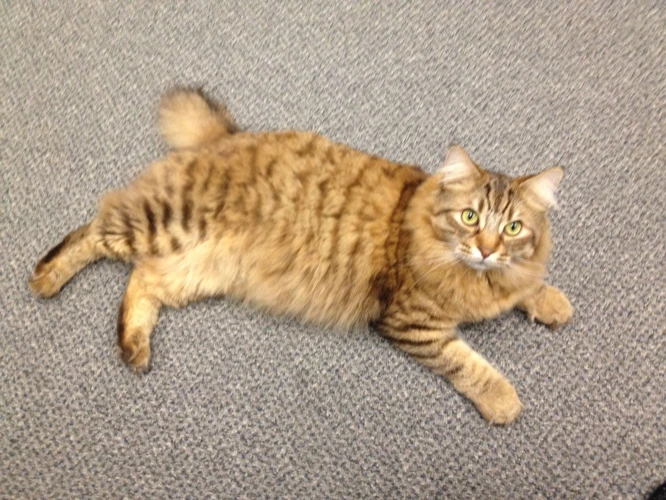
As a responsible pet owner, it is crucial to identify and treat food allergies in your American Bobtail cat as soon as possible. Ignoring the symptoms can lead to serious health complications and a lower quality of life for your furry friend. In this section, we will outline the steps you can take to identify and treat food allergies in American Bobtail cats. By following these tips, you can help your pet live a healthy and happy life.
Elimination Diet
An elimination diet is a proven method for identifying food allergies in American Bobtail cats. The process of elimination involves removing potential allergens from the cat’s diet and gradually reintroducing them to determine if they cause any adverse reactions.
To begin an elimination diet, you will need to select a limited-ingredient diet that your cat has not yet been exposed to. This may include a single protein source such as chicken, turkey, or duck, and a limited number of easily digestible carbohydrates such as sweet potatoes or peas.
Here’s an example of a simple elimination diet for American Bobtail cats:
| Day 1-3 | Day 4-6 | Day 7-9 | Day 10-12 |
|---|---|---|---|
| Start with a single protein source and a limited number of carbohydrates, such as turkey and sweet potatoes. Feed your cat this diet exclusively for three days. | Gradually introduce a small amount of a different protein source, such as duck. Feed this for three days while continuing to feed the original protein source. | Remove the new protein source and reintroduce the original protein source exclusively for three days. | Reintroduce the new protein source, such as duck, for three days while continuing to feed the original protein source. Observe your cat for any signs of allergic reactions. |
During the elimination diet, it is important to closely monitor your cat’s symptoms for any changes or improvements. If your cat experiences any adverse reactions during the reintroduction phase, you will need to permanently remove that source of protein from their diet.
Note: It is essential to consult with your veterinarian before starting an elimination diet, as some cats may have underlying medical conditions that require specific diets or nutritional needs.
Consulting a Veterinarian
It is important to consult a veterinarian if your American Bobtail cat is showing the symptoms of a food allergy. A veterinarian can help you identify the specific allergen that is causing the allergic reaction in your cat.
During your visit to the vet, they will conduct a physical examination and review your cat’s medical history. They may also perform some diagnostic tests, such as blood tests, skin patch tests, or elimination diets. These tests can help determine the exact food allergen that is causing the reaction.
Once the allergen has been identified, your veterinarian may recommend one of several treatment options. Antihistamines and steroids may be prescribed to help alleviate the symptoms of the allergic reaction. Additionally, your vet may recommend avoidance of allergenic foods or an alternative diet to manage the allergy.
It is important to follow your veterinarian’s treatment plan closely to ensure the allergy is properly managed. Regular check-ups with your vet can also help to monitor your cat’s progress and adjust the treatment plan as necessary.
Remember, consulting a veterinarian is an important step in identifying and treating a food allergy in your American Bobtail cat. Don’t hesitate to seek professional guidance if your cat is exhibiting symptoms of a food allergy.
| Reasons to Consult a Veterinarian: | What to Expect During the Visit: | Treatment Options: |
|---|---|---|
| – American Bobtail cat is exhibiting symptoms of a food allergy – Difficulty identifying the allergen on your own |
– Physical examination – Medical history review – Diagnostic tests such as blood tests, skin patch tests, or elimination diets |
– Antihistamines and steroids – Avoidance of allergenic foods – Alternative diet – Regular check-ups and adjustments to treatment plan |
Antihistamines and Steroids
When treating food allergies in American Bobtail cats, antihistamines and steroids are often used to alleviate symptoms. Antihistamines work by blocking the histamine receptors in the body that cause allergy symptoms, while steroids help reduce inflammation and swelling.
Antihistamines
There are several different types of antihistamines that can be used to treat food allergies in cats. Some common ones include:
| Antihistamines | Brand Names |
|---|---|
| Diphenhydramine | Benadryl |
| Cetirizine | Zyrtec |
| Loratadine | Claritin |
| Chlorpheniramine | Chlor-Trimeton |
While these medications can be effective in treating allergic reactions, it’s important to consult with a veterinarian before administering them to your American Bobtail cat. Dosages and potential side effects can vary based on your cat’s individual needs and medical history.
Steroids
Steroids, such as prednisone or dexamethasone, are often prescribed in cases where antihistamines alone are not effective in reducing inflammation and swelling caused by food allergies. However, these medications should be used with caution and only under the guidance of a veterinarian, as they can have potentially serious side effects if used improperly or over a prolonged period of time.
It’s important to note that while antihistamines and steroids can provide relief from allergy symptoms, they do not address the underlying cause of the allergy itself. It’s important to also explore other treatment options, such as elimination diets or alternative diets, to help manage food allergies in your American Bobtail cat.
Avoidance of Allergenic Foods
When it comes to managing food allergies in American Bobtail cats, one of the most effective methods is to avoid feeding them allergenic foods altogether. This means identifying the type of food that triggers an allergic reaction. The most common allergenic foods for American Bobtail cats are fish, beef, dairy, chicken, and eggs.
Table 1: Allergenic Foods for American Bobtail Cats
| Food | Allergenic Component |
|---|---|
| Fish | Protein |
| Beef | Protein |
| Dairy | Lactose and Protein |
| Chicken | Protein |
| Eggs | Protein |
It’s important to note that some American Bobtail cats may develop allergies to other types of food as well. To determine what your cat is allergic to, you may need to do an elimination diet (discussed in the next section).
Tip: Avoid feeding your American Bobtail cat human food or scraps as it may contain ingredients that can trigger an allergic reaction. Stick to premium quality cat food that is specifically formulated for cats with food allergies. Additionally, be sure to read the labels of cat food products before purchasing them to ensure that they don’t contain any allergenic ingredients.
Alternative Diets
When it comes to treating food allergies in American Bobtail cats, one alternative that owners may consider is an alternative diet. This involves feeding the cat a diet that is free from the allergen that is causing the allergic reaction. There are a variety of alternative diets that cat owners can try, including:
- Hypoallergenic Diet: This is a diet that is specially formulated to be free from common allergens, such as beef, chicken, and dairy. These diets typically contain a unique protein source, such as rabbit or venison, and a carbohydrate source that is less likely to cause an allergic reaction, such as potatoes or rice.
- Novel Protein Diet: This type of diet involves feeding the cat a protein source that is not commonly found in cat food, such as duck, fish, or kangaroo. The idea behind this diet is that the cat is less likely to have developed an allergy to a protein source they have not been previously exposed to.
- Home-Cooked Diet: Some cat owners choose to make their cat’s food at home, using simple ingredients that they know do not cause an allergic reaction. This can be a more time-consuming and expensive option, however, it does allow for complete control over what the cat eats.
- Raw Food Diet: A raw food diet involves feeding the cat raw meat, bones, and organs. This type of diet is controversial and requires careful preparation to ensure that the cat is receiving all of the necessary nutrients.
It is important to note that not all alternative diets will work for every cat with food allergies. It may take some trial and error to find the right diet that works for your cat. Additionally, before starting your cat on any alternative diet, it is important to consult with a veterinarian to ensure that the diet is nutritionally balanced and meets your cat’s specific dietary needs.
Tips for Preventing Food Allergies in American Bobtail Cats
As a concerned and loving owner of an American Bobtail cat, you may be wondering what you can do to prevent food allergies in your furry companion. While food allergies are a common problem for cats, especially those of the Bobtail breed, there are steps you can take to decrease the likelihood of your cat developing a food allergy. By following these tips for preventing food allergies in American Bobtail cats, you can help ensure a happy and healthy life for your feline friend.
Premium Quality Cat Food
As a cat owner, it’s important to feed your American Bobtail cat high-quality cat food to prevent the development of food allergies. Premium quality cat food is formulated to provide all the necessary nutrients without the use of artificial additives that could trigger allergies.
When choosing a premium quality cat food, look for brands that use high-quality proteins, such as chicken or fish, as the main ingredient. Avoid cat foods that contain fillers like corn, wheat, or soy, as these are common allergens. It’s also important to choose a cat food that is free from artificial colors, flavors, and preservatives.
To make your selection process easier, consider referring to a comparison chart or table of top-rated cat foods. Here is an example of what such a table might look like:
| Brand Name | Main Ingredient | Additional Features | Price Range |
|---|---|---|---|
| Blue Buffalo | Real chicken | Grain-free, no by-product meals | $$$ |
| Hill’s Science Diet | Real salmon | Designed for optimal digestive health | $$ |
| Purina Pro Plan | Real turkey | Nutritionally balanced for all life stages | $ |
By feeding your American Bobtail cat a premium quality cat food that is free from common allergens and artificial additives, you can help prevent the development of food allergies and ensure that your cat is getting all the necessary nutrients for a healthy and happy life.
Avoidance of Common Allergens
As with any other type of allergy, one of the best ways to prevent food allergies in American Bobtail cats is by avoiding common allergens. There are several ingredients in cat food that can trigger allergies in cats, so it’s essential to identify these allergens and avoid them at all costs.
Common Allergens in Cat Food
| Ingredient | Notes |
|---|---|
| Beef | One of the most common allergens in cat food |
| Chicken | Another common allergen found in cat food |
| Fish | Cats can develop allergies to certain types of fish such as salmon or tuna |
| Dairy products | Cats are often lactose intolerant |
| Eggs | Some cats are allergic to eggs or egg products |
| Grains | Cats can be sensitive to grains such as wheat, corn or soy |
Avoiding these common allergens can be challenging, especially if they’re frequently used in commercial cat food. That’s why many pet owners opt to make homemade food for their cats, where they know exactly what ingredients are being used. Alternatively, they can purchase hypoallergenic cat food, which is formulated with unique protein sources that are less likely to cause allergies.
It’s crucial to read product labels carefully when shopping for cat food. Unfortunately, pet food companies can be quite tricky with the wording they use on their packaging, so it’s essential to look beyond the marketing claims and examine the actual ingredients.
Conclusion
Being diligent and proactive with your American Bobtail cat’s diet can go a long way in preventing food allergies. By avoiding common allergens and carefully examining product labels, you can take steps toward ensuring your cat’s health and well-being.
Gradual Food Introduction
When introducing new foods to your American Bobtail cat’s diet, it’s important to do so gradually. A sudden change in diet can cause digestive upset, which can mimic allergic symptoms. To prevent this, introduce new foods gradually over a period of several days.
Here are some steps to take when introducing new foods to your American Bobtail cat:
- Start by mixing a small amount of the new food in with your cat’s current food.
- Observe your cat’s behavior and digestive health for several days.
- If there are no adverse reactions, gradually increase the amount of new food and decrease the old food.
- Continue to monitor your cat’s health and behavior as you make the transition to the new food.
- If at any point your cat shows signs of digestive upset or allergic symptoms, stop the transition and consult with your veterinarian.
By introducing new foods gradually and monitoring your cat’s health, you can help reduce the risk of food allergies and other digestive issues in your American Bobtail cat. It’s also important to note that not all cats will tolerate every type of food, so it may take some trial and error to find a diet that works well for your cat.
Probiotics and Digestive Enzymes
Another way to prevent food allergies in American Bobtail cats is by incorporating probiotics and digestive enzymes into their diet. Probiotics are beneficial bacteria that live in the gut and support digestive health, while digestive enzymes help break down food so it can be easily digested. These supplements can improve the overall health of your cat’s digestive system and may reduce the risk of developing food allergies.
Probiotics
Probiotics can be found in certain foods or taken as a supplement. Look for high-quality probiotic supplements specifically formulated for cats, and introduce them gradually to avoid upsetting your cat’s stomach. Yogurt is a natural source of probiotics, but it is important to note that many cats are lactose intolerant and cannot digest dairy products. If you choose to give your cat yogurt, make sure it is plain and free of added sugars or artificial sweeteners.
Digestive Enzymes
Digestive enzymes can also be taken as a supplement in powder or pill form. They are particularly useful for cats that have difficulty digesting certain types of food, such as wheat or dairy. Digestive enzyme supplements can help break down food into smaller, more easily digested components, preventing undigested particles from entering the bloodstream and causing an allergic reaction.
Introducing Probiotics and Digestive Enzymes
When introducing probiotics or digestive enzymes to your cat’s diet, start with a small amount and gradually increase the dosage. This will allow your cat’s digestive system to adjust to the new supplements and reduce the risk of stomach upset. It is always best to consult with your veterinarian before adding supplements to your cat’s diet.
Incorporating probiotics and digestive enzymes into your American Bobtail cat’s diet is a natural way to prevent food allergies and support their digestive health. However, it is important to remember that supplements should not be used as a substitute for a balanced diet and regular veterinary care. By providing your cat with the proper nutrients and care, you can help ensure that they lead a healthy and allergy-free life.
Conclusion
In conclusion, it is important to understand that American Bobtail cats, like all cats, can suffer from food allergies. These allergies can have a significant impact on their health and quality of life. The symptoms of food allergies can vary greatly from one cat to another, which can make identification and treatment challenging.
However, with proper knowledge, observation, and treatment, it is entirely possible to manage food allergies in American Bobtail cats. If you suspect that your cat is suffering from a food allergy, it is important to consult with a veterinarian. They will be able to help you determine the root cause of your cat’s symptoms and determine the best course of action.
Furthermore, implementing prevention measures, such as feeding your cat a high-quality diet, gradually introducing new foods, and avoiding common allergens can go a long way in preventing food allergies from developing in the first place.
Ultimately, with the right care and attention, American Bobtail cats can live long and healthy lives, free from the discomfort and irritation of food allergies. Remember, if you suspect that your cat is suffering from a food allergy, don’t hesitate to seek professional help and follow the recommended treatment plan.
Frequently Asked Questions
What are the common symptoms of food allergies in American Bobtail cats?
The common symptoms of food allergies in American Bobtail cats are digestive problems, skin problems, respiratory problems, behavioral problems, and other symptoms.
How can I identify if my American Bobtail cat has a food allergy?
To identify if your American Bobtail cat has a food allergy, look for symptoms such as itching, vomiting, diarrhea, or breathing difficulties that persist consistently after eating a particular food.
What are the most common allergenic foods for American Bobtail cats?
The most common allergenic foods for American Bobtail cats are beef, chicken, fish, and dairy products such as milk and cheese.
How can I treat my American Bobtail cat’s food allergy?
You can treat your American Bobtail cat’s food allergy by going through an elimination diet, consulting a veterinarian, using antihistamines and steroids, avoiding the allergenic foods, or switching to an alternative diet.
Can I prevent food allergies in my American Bobtail cat?
Yes, you can prevent food allergies in your American Bobtail cat by providing them with premium quality cat food, avoiding common allergens, gradually introducing new foods, and using probiotics and digestive enzymes.
How long does it take to identify the food allergies in American Bobtail cats?
It takes approximately 8-12 weeks of an elimination diet to accurately identify food allergies in American Bobtail cats.
What is a hypoallergenic diet for American Bobtail cats?
A hypoallergenic diet for American Bobtail cats is a diet that excludes allergenic ingredients like chicken, beef, fish, and dairy products and instead includes novel protein sources like kangaroo, rabbit, or venison.
Is it safe to feed my American Bobtail cat a raw food diet?
There is not enough research yet to prove that feeding your American Bobtail cat a raw food diet is safe or effective in preventing food allergies.
Can food allergies cause respiratory problems in American Bobtail cats?
Yes, food allergies can cause respiratory problems in American Bobtail cats, such as coughing, sneezing, or shortness of breath.
What should I do if my American Bobtail cat has an allergic reaction to food?
If your American Bobtail cat has an allergic reaction to food, take them to the veterinarian immediately for diagnosis and treatment.

